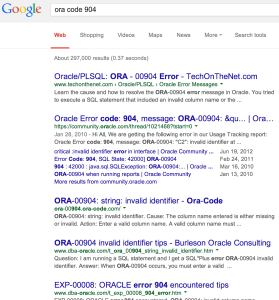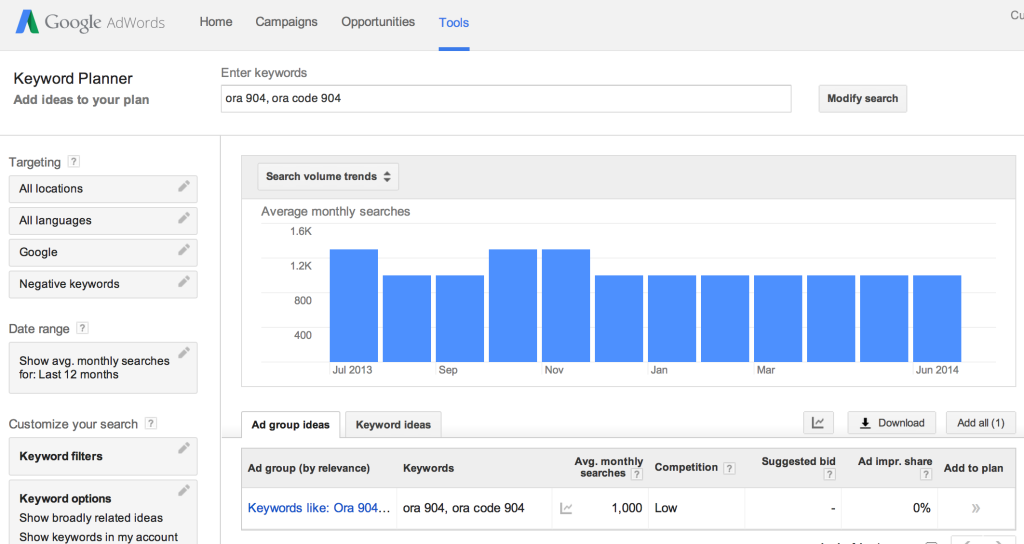Today, most B2B support knowledge bases are locked behind customer logins. But “The Times They Are A-Changin’.” It’s time to rethink that decision.
You Don’t Own Your Support Portal
What do you, personally, do when you have an issue with technology? Sure, sometimes you ask a knowledgeable friend, and a few brave souls will crack open the manual. But that’s not what usually happens.
Most likely, you Google it. We all do. (Or you use your favorite non-Google Internet search engine, but let’s say “Google” for short.)
And why wouldn’t you? It takes only one click to start a Google search. Google returns data from many sources—blogs, forums, the company website, even third party help desks. It often has questions from people just like you, and answers for people like you. It’s so easy.
You don’t own your customers’ search for knowledge—they do, the votes are in, and Google won. So, like it or not, Google is your support portal.
They’ll find lots of great knowledge out there. Will they hear from you, too?
What’s Stopping You? …Debunking Some Myths
“Putting our knowledge base on the Internet is nice in theory,” I often hear, “but we have a business to run. We just can’t give away our intellectual property for free.” When I ask for more details, I usually hear variations on these three objections.
1. Our Customers Will Stop Paying for Support
For many companies, maintenance and support is a tremendous source of profit. The financial health of the business depends on high support contract renewal rates. So what if people stop paying for support because the knowledge base is free?
This is a serious issue, and you shouldn’t risk your business on a whim. But this concern is overstated. Customers still need contracts.
- Prudent customers can’t operate mission-critical software without maintenance—compatibility releases, bug fixes, and patches for vulnerabilities. We’re not suggesting to distribute software to customers who don’t have a current contract!
- The other thing customers must have is the ability to open a support case when they really need to (although, naturally, they hope they won’t need to very often.) Requiring some kind of entitlement verification for a support case is just good business, and the finance people will require it for VSOE.
In any event, this objection is becoming increasingly moot as more companies move to a software-as-a-service (SaaS) model. For SaaS businesses, support is typically bundled into the product, so there’s no separate support contract. Voila!…there’s no risk that an open knowledgebase will cannibalize revenues.
2. Our Competitors Will Tell Prospects We Have Bugs
“People never call support to say they’re happy with the product,” as the old saying goes, and knowledge bases will inevitably document errors, misconfigurations, and yes, even bugs. This causes a concern—often bordering on paranoia—that competitors will walk into prospects’ offices waving our KB articles over their heads, yelling, “See! They have bugs! Buy our software instead!”
This nightmare scenario falls apart under closer inspection. I’ve been involved in many enterprise sales cycles, on both the sell and buy side, and I have never seen this play out. Consider:
- Salespeople don’t really want to talk about the competition—they want to talk about their solution. Differentiation is important, but badmouthing the competition only makes the salesperson look bad, and focuses attention away from what they’re trying to sell. Besides, focusing on a specific bug is far too tactical for an enterprise sales cycle.
- And, your prospects are aware your products have bugs. The fact that your products aren’t perfect won’t come as a surprise. The interesting question is, how will you help customers overcome your product issues? Clear, helpful knowledge base articles are a great start.
- Finally, if there’s something so bad that it might truly jeopardize your ability to sell the product, your competitors and prospects won’t need a KB article to hear about it. It’ll be on forums, Twitter, CNET…if it’s big, and bad, it’s just not going to be a secret. At least, if there’s a KB article, they get to hear from you, with suggestions and workarounds.
3. Our Competitors Will Figure Out Our Secret Sauce
The other related concern we hear is that competitors’ product teams will pour through knowledge base articles so they can understand and steal proprietary technology. Once again, this concern doesn’t stand up to scrutiny.
First, think about your own product teams. Go talk with them and ask. How interested are they in stealing someone else’s IP? Any engineer who is skilled enough to reverse engineer someone else’s feature would rather invent it herself. What’s hard, in my experience, is getting engineers to pay attention to what others in the market are doing at all! So the chances that your engineers will wade through a different company’s KB to discover their next breakthrough are essentially zero. Your competitors’ engineers are no different.
But let’s say I’m wrong about this. Let’s say a competitor really is set on stealing your IP. Why on earth would they go looking in the knowledgebase?
As a former product manager, I can tell you that, if I think you’re an interesting competitor, I’ve read your documentation. I’ve seen your product—your current customers who are my prospects have demoed it to me. I may have hands-on experience with a trial version. I know what your product does and, to a certain extent, how it does it.
So, what would be gained by trolling through your knowledge base? As a product manager, I only have so much time for competitive analysis. KB articles are definitely not the low-hanging fruit.
Get Some Data
It’s easy for others to object to opening your KB in the abstract. Gathering data makes your case for putting knowledge on the Internet more compelling.
Who Speaks For You?
 Given that people will use Google as their initial support portal, it’s useful to know what they see when they go there. Take the top ten or twenty queries you get on your knowledge base, and enter them into Google (adding a company, product, or module name, as people would do to narrow down their Internet search). What do you see? Who speaks for you?
Given that people will use Google as their initial support portal, it’s useful to know what they see when they go there. Take the top ten or twenty queries you get on your knowledge base, and enter them into Google (adding a company, product, or module name, as people would do to narrow down their Internet search). What do you see? Who speaks for you?
It may be that other parts of the company—marketing or tech pubs—answer the questions. Maybe LinkedIn groups or forums. Help desks. Consulting firms or systems integrators. Maybe even competitors.
Look at their answers, and then look at the answers you have inside your knowledge base. I’m guessing yours are better, more helpful, and maybe even put your company in a better light. This “before and after” picture can be a compelling visual for others in the company.
Google Keyword Data
Of course, the customer experience on Google only matters if people are, in fact, going there. So far, all I’ve offered is “proof by assertion” the Google is your support portal, but you can get real data.
(Note: to do this research, registration is required: you’ll need to sign up for a free Google AdWords account.)
- Go to https://adwords.google.com/um/GetStarted/Home
- Select “Get search volume for a list of keywords…”
- Enter your search phrases, with variations separated by commas
- Click “Get search volume”
 You’ll see a month-by-month chart telling you exactly how often these searches were entered in Google—not even counting, for the moment, volume on Bing, Yahoo! and others.
You’ll see a month-by-month chart telling you exactly how often these searches were entered in Google—not even counting, for the moment, volume on Bing, Yahoo! and others.
Compare these volumes with search volumes on your own support portal. Where is customer demand really coming from?
Ask Your Customers
At a recent industry event, I was part of a panel providing “constructive feedback” to a support executive from a big, somewhat old school tech company. During the session, I was delighted to hear that they’d taken the plunge and put their knowledge base out on the open Internet. After congratulating the executive, I asked, “Was it a difficult decision? What made the company open to doing this?”
He said that there had been strong resistance to opening up the knowledge base. What made the difference was when the general manager of the biggest division said, “Just do it. Now.” He did this not because of any kind of analysis, but because customer after customer told him that’s what they wanted.
So, ask your customers. If they want your knowledge base to be out on the web, advocate for them, and make sure that senior executives get the message.
You’re In the Customer Success Business. Own It.
We often ask our customers, “Why does your organization exist?” After some reflection, the answer always is something like, “so our customers can be successful, which makes them recommenders, as well as more likely to keep buying.” One had an especially nice way of saying it: “We want our customers to receive, and perceive, value.” I think this is exactly right. Whether you have a formal Customer Success team or not, all support professionals are in the customer success business.
Knowledge is the key enabler of customer success. Armed with the right knowledge, customers can fix problems, learn how to accomplish tasks, and even achieve business goals they had no idea your product could help them with. And, with an online knowledge base, they can do this in a way that’s convenient to them, 24 x 7, and infinitely scalable. Knowledge is power, and empowered customers are loyal customers.
So, how are you going to get customers the knowledge they need and want? The obvious answer is, put it wherever they’re going to look for it! Increasingly, that’s Internet search.
Drive customer success. Put your knowledge on the open Internet. Invest in Search Engine Optimization (SEO), so your KB articles come out on top. Because if someone is asking the question…you really should have a shot at delivering the answer.
Nice DBKay….love this article and shared it with my B2B accounts. Hope you are well!